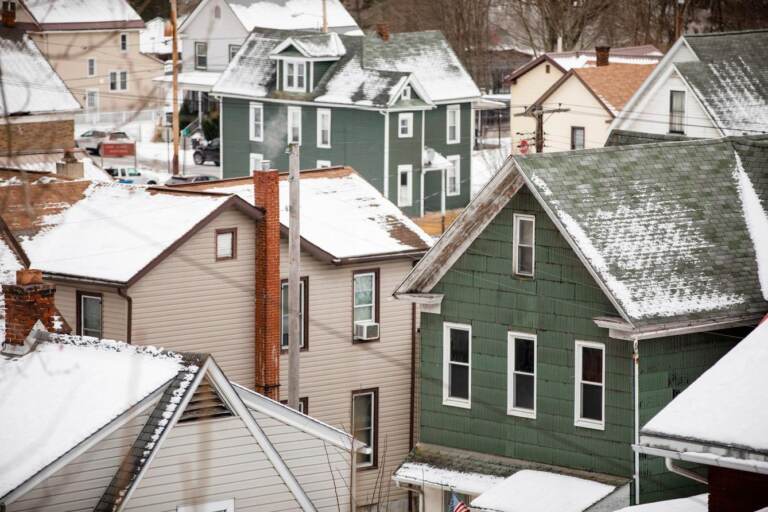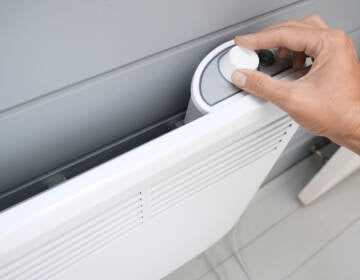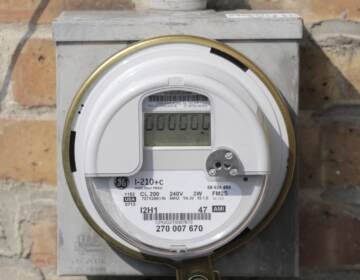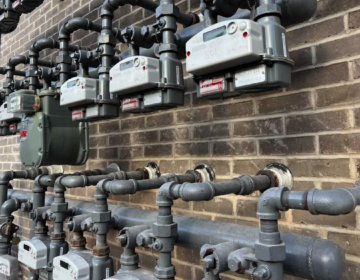How Pennsylvania homeowners can apply for mortgage and utility assistance
The Pennsylvania Homeowner Assistance Fund can help people who fell behind on mortgage, utilities during the pandemic — but be prepared for a wait.

The Pennsylvania Homeowner Assistance Fund can help with late mortgage payments, utility bills, and property taxes, as well as other housing costs. (Amanda Berg/Spotlight PA)
This story originally appeared on Spotlight PA.
Pennsylvania received $350 million from the federal government to help homeowners who fell behind on their mortgages during the pandemic.
Getting the money out, however, has been slow going. As Spotlight PA reported, the aid program is overwhelmed by demand and struggling to get critical information from mortgage companies, leaving thousands of people in limbo.
If you’re a Pennsylvania homeowner who needs help catching up on mortgage payments or other housing costs, here’s a basic guide to what you need to know about applying for help.
What’s available?
The Pennsylvania Homeowner Assistance Fund can help with late mortgage payments, utility bills, and property taxes, as well as other costs like homeowner’s insurance or homeowner association fees. Some applicants also qualify for help with upcoming mortgage payments.
The maximum amount of assistance anyone can receive is $50,000. Within that, there are also caps on how much you can receive in utility assistance ($10,000), property tax assistance ($14,000), insurance premiums ($3,000), and homeowner or condo fees ($5,000).
As of February 1, 2022, you can only receive each type of assistance once — so if you receive funding for your mortgage debt, for example, and then fall behind again, you won’t qualify for another round of help for that type of aid.
Payments from the program go directly to your mortgage or utility company.
You can find more detailed information on the program’s website.
Who qualifies?
You need to be a Pennsylvania homeowner who experienced financial hardship as a result of the COVID-19 pandemic, starting January 21, 2020.
To qualify for help with your debt, you must be at least one month behind on your bills.
To receive help with ongoing mortgage payments, you have to be up to date on your mortgage and your payments must take up at least 30% of your monthly income.
The property tied to your application must be your main residence, and the amount you borrowed for your mortgage must be below a certain limit, depending on the year you took out the loan and the location of your home.
You also need to meet income requirements, which vary based on your county or metro area.
How long will it take?
Applications aren’t first come, first served. Homeowners are given priority based on their income, demographics, and whether they’re at risk of foreclosure, having their utilities shut off, or having their home sold because they are behind on property taxes.
Wait times also depend on how quickly your mortgage company responds to the program’s requests for information and whether that process runs into any obstacles.
Be prepared to wait at least several months.
What if I need help with my mortgage as well as other housing costs?
In these cases, the program’s policy is to not work on other requests until your mortgage assistance has been awarded, which could leave your utility bills or property taxes on hold for months.
However, if you’re at risk of having your utilities shut off, or having your property sold to pay off back taxes, you can sign a form agreeing to get help with those bills first.
What if I’ve already been waiting for months?
Unfortunately, long waits aren’t unusual. The program’s internal goal when it launched last February was to get assistance to homeowners within 60 days. But the level of demand and the difficulty of coordinating with mortgage companies pushed average wait times to more than four months, as of mid-December 2022.
If you’re waiting and need updates, you can try to contact your caseworker directly or set up an appointment through the program’s call center. Spotlight PA found that some people have had more success reaching out to the program on Facebook Messenger, via the Pennsylvania Housing Finance Agency page.
Can I be foreclosed on while I’m waiting?
In most cases, mortgage companies are required to put foreclosure proceedings on hold for at least 60 days once someone has applied to the program. Program officials told Spotlight PA that many companies have been willing to wait longer. If you receive a pre-foreclosure notice — sometimes called an Act 91 or Act 6 notice, depending on what type of loan you have — send it to the program right away.
Can my utilities be turned off while I’m waiting?
Yes, and Spotlight PA found it has happened in some cases, although program officials try to avoid this. There’s no legal requirement that utilities pause shut-offs once someone has applied. The program advises applicants who’ve received shut-off warning notices to send them to caseworkers as soon as possible.
Read Spotlight PA’s full investigation, “Waiting Game,” here.
 Spotlight PA is an independent, non-partisan newsroom powered by The Philadelphia Inquirer in partnership with PennLive/The Patriot-News, TribLIVE/Pittsburgh Tribune-Review, and WITF Public Media.
Spotlight PA is an independent, non-partisan newsroom powered by The Philadelphia Inquirer in partnership with PennLive/The Patriot-News, TribLIVE/Pittsburgh Tribune-Review, and WITF Public Media.
WHYY is your source for fact-based, in-depth journalism and information. As a nonprofit organization, we rely on financial support from readers like you. Please give today.






